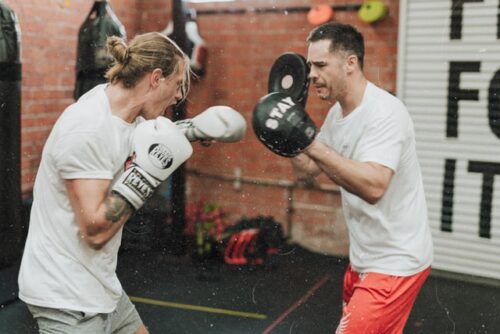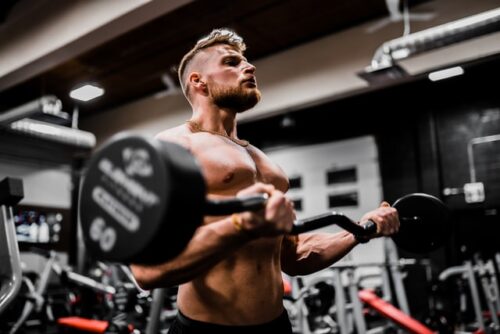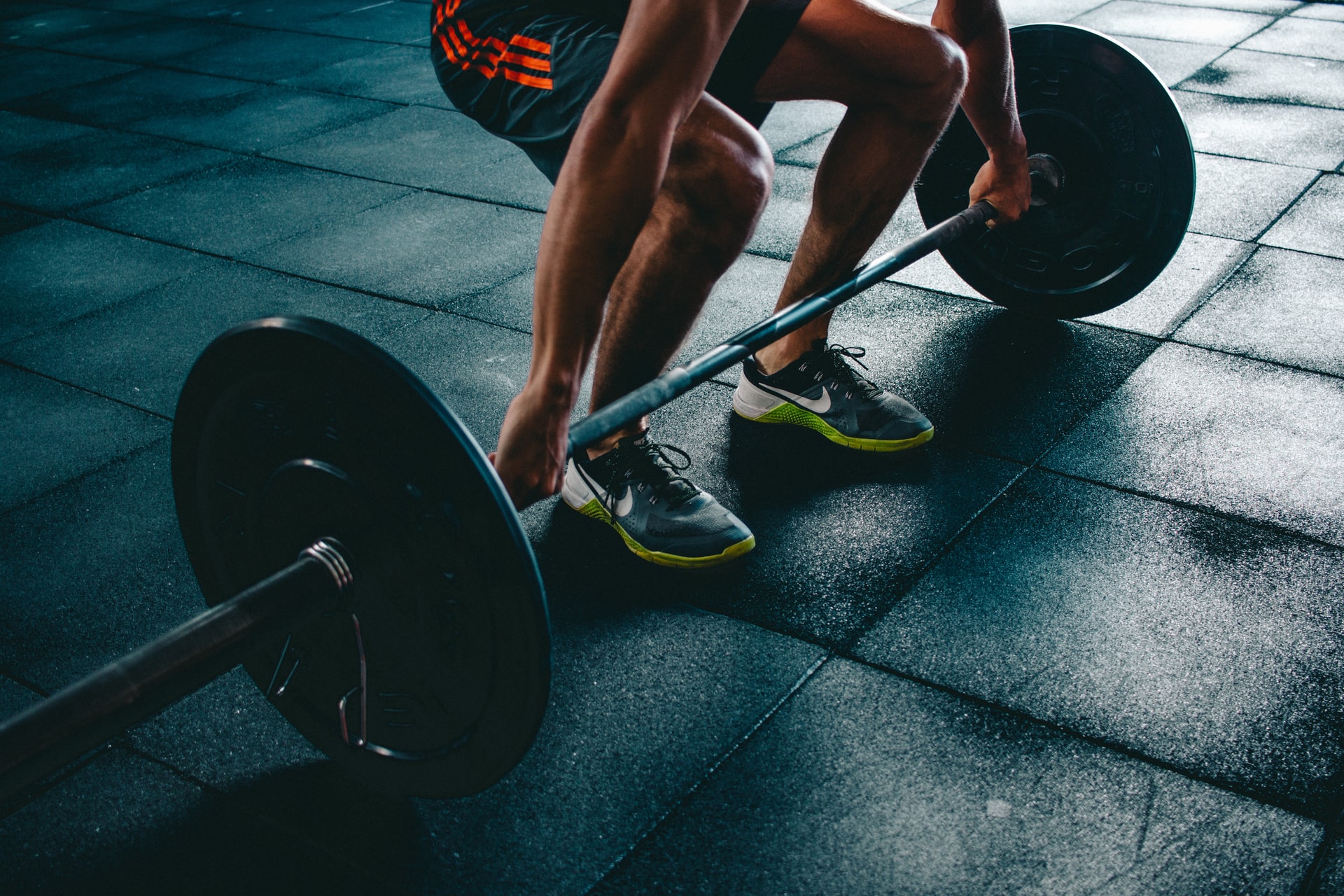Weightlifting helps boxers to gain power and strength, which is essential for making more rapid and explosive movements, as well as a nice punch. However, weightlifting can hurt if the boxer doesn’t follow a proper weight-training plan.
Strength and power are crucial components for any fighter. It can be a decisive thing when it comes to victory and defeat. Therefore, you can’t say weightlifting doesn’t help boxing because this training type primarily focuses on those two.
Of course, my training plan is different from my friend’s because he is a bodybuilder and more focused on muscle growth.
I’ve learned how to balance between boxing and weightlifting, and all I can say is that boxers can’t be good enough without weight training.
Many people want to know how to balance two of the most popular sports in the world – boxing and weightlifting. In this article, we are going to learn everything about it.
Table of Contents
Does Boxing Lose Muscle Mass?
Doing only boxing with no weightlifting will definitely make you lose weight as well as muscles.
Boxing is a full-body workout that has various benefits, such as strength, speed, coordination, agility, power, and endurance improvement.
It also helps you to build muscles in your legs, arms, shoulders, core, chest, and hips, if you combine it with weightlifting.
Intense boxing training will definitely limit your gains because boxing uses a lot of body energy, so the body carries only the necessary amount of muscle mass.
4 Reasons why boxing training (without weight) can make you lose muscles:
- Boxing is an anaerobic activity, meaning it uses up oxygen and causes the body to break down muscle tissue.
- Lifting weights can increase cortisol levels, which can lead to an overall decrease in muscle mass and strength. Cortisol is a hormone that helps the body respond to stress, but it also has negative effects on the muscles.
- Boxing training often leads to fatigue and decreased strength because it overuses the fast-twitching muscles in your body. This may not lead directly to losing muscle but can definitely keep your muscle mass in a plateau (no muscle gain). Especially if you weightlift after a boxing training session.
- Boxing can cause injuries, particularly to the head, wrist, and neck. This is another indirect cause. During boxing training, injury is quite common – preventing you from weight training. Thus, losing muscle mass while you rest.
Because of these facts, you need to add weightlifting to your training program. That’s how you’re going to stay strong and build your muscles.
Of course, you are not going to have weight training like a bodybuilder. Bodybuilders are looking to add muscle mass, and you don’t need to be bulk as a boxer.
You do need a muscle gain, but not too much – myofibrillar hypertrophy is important for you, your improvement, and your victories. This type of hypertrophy doesn’t affect muscle size that much, but it increases the number of myofibrils, and therefore strength in muscles.
Boxing uses punches to create tension in the muscles, while weightlifting uses heavyweights to overload the muscles. This type of training can help increase the size and strength of your muscles – these two sports can actually be beneficial together because they work the muscles in different ways.
Boxing and weightlifting can both help or hurt your goal of muscle mass and martial arts. It depends on how you balance these two. A good balance results in the best possible results. – your aim should be myofibrillar hypertrophy which increases the number of myofibrils and therefore strength in muscles.
Can I Do Weights And Boxing On The Same Day?
You can do weights and boxing on the same day, but it is not recommended. You’re going to lose strength and become tired. This will hinder you from improving.
Additionally, doing weights and boxing on the same day causes your joints to take more of a beating than they would if you waited until later in the day or week.
Therefore, if you do weightlifting and then boxing, boxing is going to suffer – you won’t give your 100% during the second training. Everything is the same in reverse. That’s why weightlifting and boxing on the same day are not recommended.
But, if you only want to lose weight (without caring too much about gaining muscle or improving in boxing), then it’s fine to do boxing and weights on the same day.
On the other hand, if you want to gain muscle, then you shouldn’t box and weight lift on the same day, because it’s high-intensity training. Plan your week around your boxing and weight days instead. You could do alternate days – where you do boxing on day 1 and weight training on day 2.
If you decide to do weights and boxing on the same day, I recommend you refuel yourself with starchy carbs, isotonic drinks, vegetables, and maybe a protein shake. It can increase the effectiveness of your second session and save you from harsh exhaustion.
If you have a chance to separate the weightlifting day and boxing day, then go for it – you will give your body a bit of rest. Remember that rest is a huge part of improvement, too.

If you are more focused on learning boxing techniques, then it’s better to train boxing and weight lift on different days – when you have maximum energy.
Can I Do MMA And Weightlifting On The Same Day?
You can do MMA and weightlifting at the same time – as long as you perform them intelligently. Ideally with a trainer to make sure you are not overdoing it.
MMA is a full-contact sport and it’s like a mix of other sports, such as judo, boxing, wrestling, and Taekwondo.
Therefore, MMA fighters need to be strong but light. They have to go through insane training programs to improve their strength and agility – this includes weightlifting.
Weightlifting is a great way for them to improve their speed, agility, power, strength, and coordination. But you don’t want to overdevelop your muscles and carry more weight around because it can slow your movements.
There is a special MMA weightlifting program that includes several phases. It saves you from the side effects.
The first phase prepares MMA fighters for their octagon sessions by focusing on all-around muscle and strength conditioning. It includes a warm-up and Romanian deadlifts, 3 sets of 12 repetitions.
The next phase is more focused on endurance and power. It includes RDLs, dumbbell presses, pull-ups, barbell back squats, and crunches.
The third and final phase of the MMA weightlifting program is the maintenance of strength and power. It consists of quicker movements, lighter resistance, and faster execution.
Grip strength is also important for an MMA fighter. There are some weightlifting exercises to improve it – Hammer curl and reach or Suitcase carry, for example
Do Fighters Powerlift?
Fighters do powerlift in order to improve their strength, coordination, balance, agility, and punching power.
Many heavier weight fighters do powerlift because they need that strength to compete. That said, I don’t recommend powerlifting if you are fighting at a lighter weight class or you are a recreational or fitness-oriented boxing participant.
Powerlifting focuses on three lifts – bench presses, deadlifts, and squats. It’s not about how many lifts you can do – it’s about how much you can lift. You need to apply as much force as possible for every lift.
That’s how you develop muscles in the upper and lower body and encourage them to cooperate. This cooperation is one of the characteristics of a great boxer.
Therefore, powerlifting is an effective thing and develops all of the major muscle groups necessary for a good, effective punch.
You develop your calves, quads, shoulders, arms, core, chest, and the entire posterior chain.
Does Weightlifting Affect Boxing?
Weightlifting definitely affects boxing – it increases the boxer’s speed, endurance, power, strength, coordination, and balance.
Lifting weights is crucial if you want to become a good boxer. It has various benefits and helps you improve the skills needed in the ring.
It affects all muscle groups, which is important – boxing consists of full-body movements and muscle cooperation.
Many people are wrong because they think weightlifting only does a lot of damage to the boxer and disables him/her to do more complex movements and forceful punches.
The secret is in a proper weightlifting training program. You can’t train like a bodybuilder and expect you’re not going to carry more weight around. So, an adequate training plan is everything you need. Combine different exercises at the gym or home – prefer less weight, more repetitions.
You need to do exercises that promote myofibrillar hypertrophy – it strengthens your muscles and the muscle size changes are not major ones.
Of course, if you are in a heavier category, you will probably have to do more powerlifting.

Weightlifting can make you stronger in fights but don’t overdo it. Especially if you are fighting in lower weight classes. Muscles can slow you down.
Should You Box Before Or After Weight Training?
If you are focused on boxing, then schedule your boxing first and then weight training. If you are more focused on muscle gain, then schedule your weight lifting first, and then do boxing.
Training causes microscopic tears that need to be repaired by muscle fibers growing and thickening.
As I said before, your heart and breathing rate also increases, and all of that makes your body fatigued.
Anything you do after one training session is not going to be effective enough.
Whether to box before or after weight training depends on a variety of factors.
After doing the first exercise, you will get fatigued and lose strength – causing you to not give 100% on the second exercise.
How To Balance Boxing and Weightlifting?
You can balance boxing and weightlifting by determining your goal, choosing the right combos between boxing and weightlifting, and being consistent with your plan.
When people think of boxing and weightlifting, they often think of the two as competing activities. While this is partially true, boxing and weightlifting can also be complementary exercises.
Boxing can help improve your strength and endurance, while weightlifting can help you build muscle and lose fat.
Therefore, boxing combined with weightlifting gives excellent results and helps the boxer to improve more and more.
However, it’s important to properly balance boxing and weightlifting so that they don’t hurt your body in any way.
Too much boxing or weightlifting can lead to injuries such as tendonitis or rotator cuff tears. It’s also important to avoid overtraining, which can cause your body to become too tired to do either activity effectively.
Don’t forget that rest is as important as training – your muscles need to relax, and a lack of rest days is going to slow down your improvement and increase the possibility of injuries.
Balancing boxing and weightlifting is a balance that takes time and practice to perfect. But by doing so, you’ll be able to achieve the benefits of both exercises while avoiding any negative side effects.
In the following text, there are some instructions explained on how you balance boxing and weightlifting.
1. Determine Your Goal (Muscle Mass Or Martial Arts)
It’s important to identify your goal first, so you can focus on the right exercise. This way, you can plan your training days to make sure your main goal is not hindered.
If you want to get leaner, tougher, and can defend yourself, then boxing can help you to achieve those goals.
However, if you only want to gain muscle, stay healthy, and avoid injury, then weightlifting can help you. But remember that you can hurt yourself by weightlifting too, so be careful.
When it comes to weightlifting and boxing, many people believe that they help promote muscle growth and physical fitness. However, others believe that these workouts can actually have a negative impact on the body if done incorrectly.
The truth is, this combination is excellent if you want to become a great boxer – you only need an adequate training program with a focus on muscle strength and not size.
On the other hand, boxing and weightlifting combination also helps you to gain muscle mass and weight, but with another training program different from the one mentioned before.
So, it is important to identify your goal first before starting any type of workout. If you are looking to increase muscle mass, then focus more on weightlifting and find a suitable training plan that focuses on your goal.
If you are more focused on boxing, then do weightlifting with a focus on myofibrillar hypertrophy for muscle strength improvement – you don’t want to carry more weight around. It can slow you down and make you worse in the boxing ring.
Of course, if you’re competing in the heavier category, the boxing-weightlifting ratio is different.
However, if you are just looking to improve your overall fitness level, then other activities may be better suited for you. You can do some boxing or running and light weightlifting at the gym.
2. Choose the Right Combos Between Boxing & Weightlifting
Alternate days between boxing and weightlifting is the best combo to focus on both exercises.
But depending on your goal, you may want to give more days to one exercise. Whatever you choose to focus on, you should avoid doing both exercises on the same day – especially if you do them immediately afterward.
After the first session, the second one is not going to be 100% effective because your body gets fatigued after the first workout and needs a rest.
But if you decide to do both boxing and weightlifting on the same day, drink a protein shake, and eat some carbs and energy bars after the first session.
3. Be Consistent With Your Plan
It’s hard to be consistent, but once you become, only the sky is your limit. You only need to make sure your plan follows your dreams.
Break down your goals into smaller pieces – don’t expect to be a pro boxer after three months of dedication. Write down some realistic goals instead, and try to achieve them.
Be systematic and organized, and remind yourself every day why you started.
Do Weights Make You Punch Harder?
Weights do make you punch harder, but it likely depends on the individual’s specific body composition, muscle fiber type, power output, and other factors.
Weightlifting and boxing are two popular sports that involve weights and punches. Many people believe that weightlifting helps make punches stronger, but others believe that it hurts the punching ability.
Overall, it seems that weightlifting can help to increase muscle strength and endurance, which is important for boxers.
There are many debates on whether weights make you punch harder. Some people believe that by adding weight to your punches, you will increase the power and effectiveness of your punches.
Others believe that because weightlifting is a cardiovascular exercise, it actually helps improve your punching power.
There is no real answer to this question as it depends on personal preference and training style. However, most people would agree that adding weight to your punches does increase the power and effectiveness of your punches.
Everything is ultimately up to the individual to decide whether they think it is worth incorporating into their fitness routine.
Conclusion
Boxing and weightlifting are a good combination – it helps boxers to gain more muscle strength, endurance, power, and agility.
It’s everything about the balance between these two, and the balance is decisive, whether the boxing and weightlifting combination helps or hurts.
Boxing and weightlifting are both great sports, but you need to make sure you are balancing them correctly for your own body type. We hope this article has helped you!






